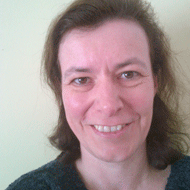A voice for the ordinary general practitioner

Susan Macaldowie
RCVS Council elections are a stone's throw away, with ballot papers being posted next week. MRCVSonline spoke to candidate Susan Macaldowie who hopes to be elected as “the voice of the ordinary general practitioner”.
Since qualifying from Glasgow University in 1992, she has worked in small animal practice and is now director of her own two-site business. Mrs Macaldowie was introduced to RCVS work when she joined the Working Party for Council Diversity.
Why did you decide to stand for election?
After I responded to the RCVS president’s request for input as to possible reasons why all 2013 candidates were older, male members of our profession, I had several conversations with current council members and realised that my experiences in general small animal practice could be relevant to numerous areas of the college’s work.
A number of colleagues who know me through clinical or committee situations have been very encouraging, suggesting that I am “the right sort of person” to stand for council, particularly in this current era of great changes being planned.
Also, having expressed frustration at a lack of knowledge regarding RCVS decisions in previous years, it seems logical to try to get involved, rather than letting others decide our future.
What are you hoping to achieve if you are elected to the council?
There is a huge diversity of roles, interest and skills within the council, and my understanding is that much of the work happens within sub-committees which report back to council.
I have no set remit or ambition, but would hope to contribute positively to whichever discussions and tasks were ongoing. After years of volunteering for BSAVA, I am confident that this workload can fit around the other demands of my work and home life.
To be honest, I hope and expect to meet some new and interesting people through the position, along with experiencing a steep learning curve in areas of our profession of which I know little.
What changes would you like to see in the profession?
Our profession is woefully poor at getting involved in “politics” (myself included, up until now), even when the decisions can have major implications for us. Making ourselves heard, making the issues relevant to the younger members of the working and student vet worlds, and actively engaging them in decision making, would be huge steps forward.
Where do you see the college in five years?
I hope that the college will be seen as approachable and supportive of the profession, with clear communication and accessibility to all.
Why should our members vote for you?
Please vote for me if you would wish the voice of the ordinary general practitioner to be heard, and when necessary, to “fight our corner”, for those of us facing the animal-owning public on a daily basis. The issues we face are completely different to those of academics and referral centres, and we are under-represented in most of the committees making decisions which impact on us.
How can the college connect better with the veterinary profession?
There is a disconnect between the college’s role and what most vets would like the college to do “for us” and with us. It is important that the college is seen as working with both vets and the public for mutual benefit. Hopefully a more diverse and youthful council – in 2014 and going forward – will develop some initiatives to engage positively with everyone, especially those early in their veterinary careers.
In the run-up to the voting deadline on April 25, MRCVSonline will be speaking to all candidates standing for election to the RCVS Council.



 The Veterinary Medicines Directorate (VMD) is inviting applications from veterinary students to attend a one-week extramural studies (EMS) placement in July 2026.
The Veterinary Medicines Directorate (VMD) is inviting applications from veterinary students to attend a one-week extramural studies (EMS) placement in July 2026.